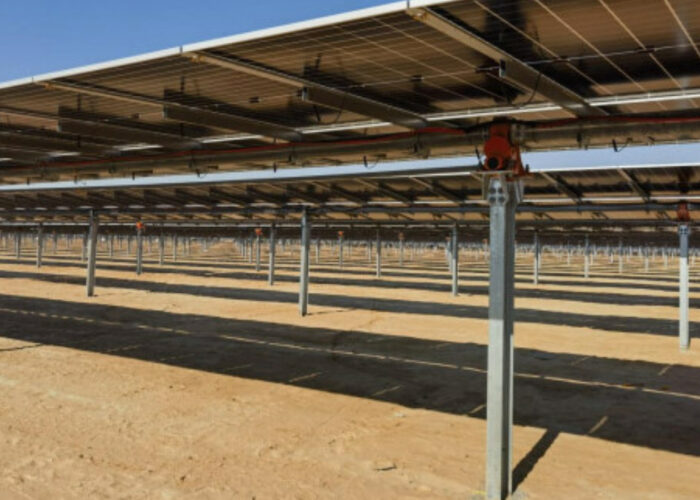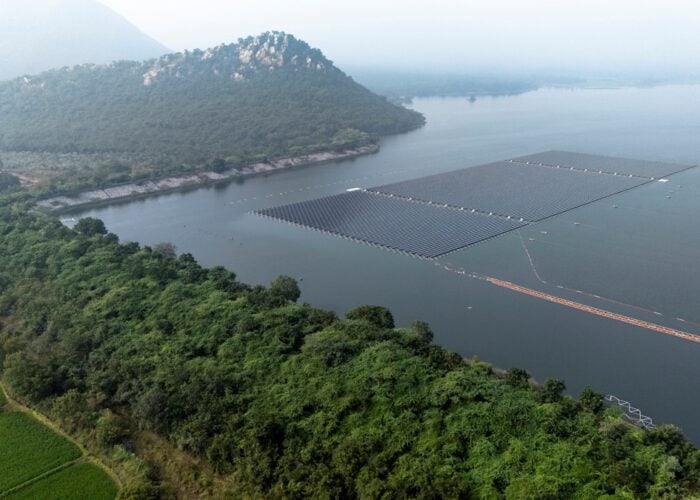Zinc redox flow batteries could be a “viable substitute” for simple cycle peaking power plants in the US, especially as the increase of solar penetration adds concerns over grid stability, according to a new whitepaper.
The study, by grid-scale energy consultancy Energy Strategies Group (ESG) pitted flow batteries made by Montana-headquartered ViZn Energy against combined cycle gas turbines in terms of their ability to act as simple cycle peaking power plants, more commonly known as peaker plants. Peaker plants run to meet demand when it is at its highest, or peak level. Flow batteries, on the other hand, use tanks of electrolytes to store energy, meaning that in theory they can be scaled up to provide longer-duration storage than is typically found in other types of battery, such as lithium-ion.
Try Premium for just $1
- Full premium access for the first month at only $1
- Converts to an annual rate after 30 days unless cancelled
- Cancel anytime during the trial period
Premium Benefits
- Expert industry analysis and interviews
- Digital access to PV Tech Power journal
- Exclusive event discounts
Or get the full Premium subscription right away
Or continue reading this article for free
Typically, ViZn’s flow batteries provide up to about four hours of storage. Jigar Shah, high profile solar advocate and founder of SunEdison, is listed on the advisory board of ViZn Energy Systems, which describes itself as a provider of “micro-grid scale energy storage solutions to operators of utilities, thin-grids and island grids that have a significant renewable energy production component”.
According to Chet Lyons of ESG, who authored the paper, ViZn Energy’s batteries are “an economically attractive substitute for many simple cycle gas-fired combustion turbine peaking plants, especially when deployed on a distributed basis and owned and operated by the electric utility”. Storage could be especially useful – and suitable for monetisation – if located on distribution grids where PV penetration levels are high. In addition, Lyons argues that storage could provide maximum benefit in allowing deferment of distribution infrastructure pgrades.
Lyons echoed the sentiments of other recent commentators in saying that comparable to solar, storage is at the beginning of a stage of “disruptive decline in cost” over the next three to five years. Solar PV combined with storage is likely to replace conventional centralised generation, transmission and distribution assets on a large scale, while turning the centralised power grid model “inside out”. This predicted turnaround for the electricity industry, Lyons said, has already lead to a number of US utilities investing heavily in solar, while Arizona’s Public Utilities’ Commission is already looking at replacing 10% of the state’s simple cycle gas peaking plants with storage.
The white paper asserts that by 2018, ViZn’s flow batteries could cost essentially the same in terms of installed kilowatt-hours as the gas plants.
“By 2018 the CapEx of ViZn Energy’s four-hour flow battery storage solution, which ESG uses as a proxy for the lowest cost flow battery technologies now being commercialised, is projected to be US$974 per kW, or US$244 per (installed) kWh, essentially the same as a conventional simple cycle CT. Storage will be a disruptive winner against simple cycle gas-fired CTs at that point, assuming a typical mid-range cost for competing fossil-based CT generation resources,” Lyons said.
Read the full version of this story on PV Tech Storage






